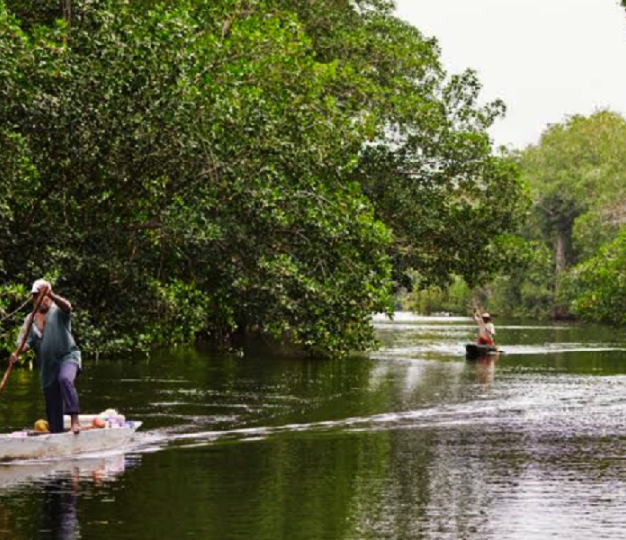EU Projects with Colombia
The EU has a 25-year history of cooperation in Colombia aimed to support peace-building and stabilization efforts in the territories. It collaborates with Ministries and public entities, civil society actors and small and medium enterprises. It promotes local economic development policies and initiatives, and green (environment-friendly) growth. The EU funds projects that offer relief, sustainable economic alternatives and capacity building to people affected by the conflict, with a specific target on women and youth.
EU Cooperation
Colombia recently became an Upper-Middle Income Country. Nonetheless, Colombia is still recovering and healing from 52 years of internal war. Structural reforms are needed to address the root causes of the conflict, such as those put forward in the historical Peace Agreement signed between the Colombian State and the FARC-EP in late 2016.
The EU, as one of the international entities called to accompany the implementation of the Peace Agreement, has committed to supporting Colombia’s efforts to overcome long-standing inequalities and build a sense of sustainable and lasting peace. Our cooperation priorities focus on:
- Peacebuilding, reconciliation efforts and promoting human rights.
- Preserving the natural resources, the rich Colombian biodiversity and tackling climate change.
Our cooperation aims ultimately to reduce poverty, promote more inclusive development, and leverage the potential of trade, investment and the private sector. It contributes to reaching several sustainable development goals, in particular, SDG 16 focusing on peace, justice and strong institutions and SDGs 1, 2, 3, 5, 8 and 10.
If you want to know more on how the EU cooperation works, click on this video (in Spanish).
Development Cooperation
A considerable part of EU support to Colombia takes the form of “budget support”. This is the direct transfer of resources to the National Treasury of Colombia against the fulfillment of jointly agreed targets. Targets are aligned to national development policies and aim to support and increase government efforts in the fields of environment, sustainable local development, support to Small and medium enterprises, rural development and reincorporation of former FARC combatants into civilian life.
For the period 2021-2027, the European Commission is mandated to implement the European Green Deal, a roadmap to make Europe a climate-neutral region by 2050, where growth and development are sustainable, green technologies are integrated into daily life and nature respected, seeking the well-being of people and the environment.
In the context of our development cooperation, implementing the Green Deal means helping partner countries to design and implement sustainable growth strategies and to recover from the pandemic in an environmentally friendly manner. This makes much sense in Colombia, the second most biodiverse country in the world, in which Amazonia makes up for 40% of its territory.
In the next years, the EU will also continue to work with Colombia to overcome gender-based inequalities and fight gender-based violence. There will be no sustainable peace in Colombia until women and girls get better access to socio-economic and political opportunities. The EU will promote the rights and positive influence of women movements, women rights leaders and stimulate women economic empowerment and inclusion throughout all of its cooperation.
Support to civil society
Continuous and structured support to civil society also contributes to the sustainability of peace and boosts the local development agenda.
Civil society organizations (CSOs) often have been providing social services in remote and violence-affected areas with low State presence, building social capital as well as caring for and protecting the environment. They have proved over the years to be essential actors to deepen democracy, monitor and denounce human rights violations, overcome conflict and promote a more inclusive society. Colombian civil society is richly diverse and structured at different levels (national platforms, regional and community-based organizations). The EU works in particular with women, young people in rural areas, human rights defenders, farmers and their families, indigenous and afro-descendant people.
The EU is committed to consolidate and strengthen its role as a key development actor.
A jointly elaborated “Roadmap” guides European cooperation with CSOs and sets out the priorities for EU support to civil society. For the period 2021-2024, this Roadmap focuses :
- Promoting an enabling environment.
- Promoting CSO’s participation and impact on public policies and cooperation initiatives.
- Strengthening CSO’s capacities.


